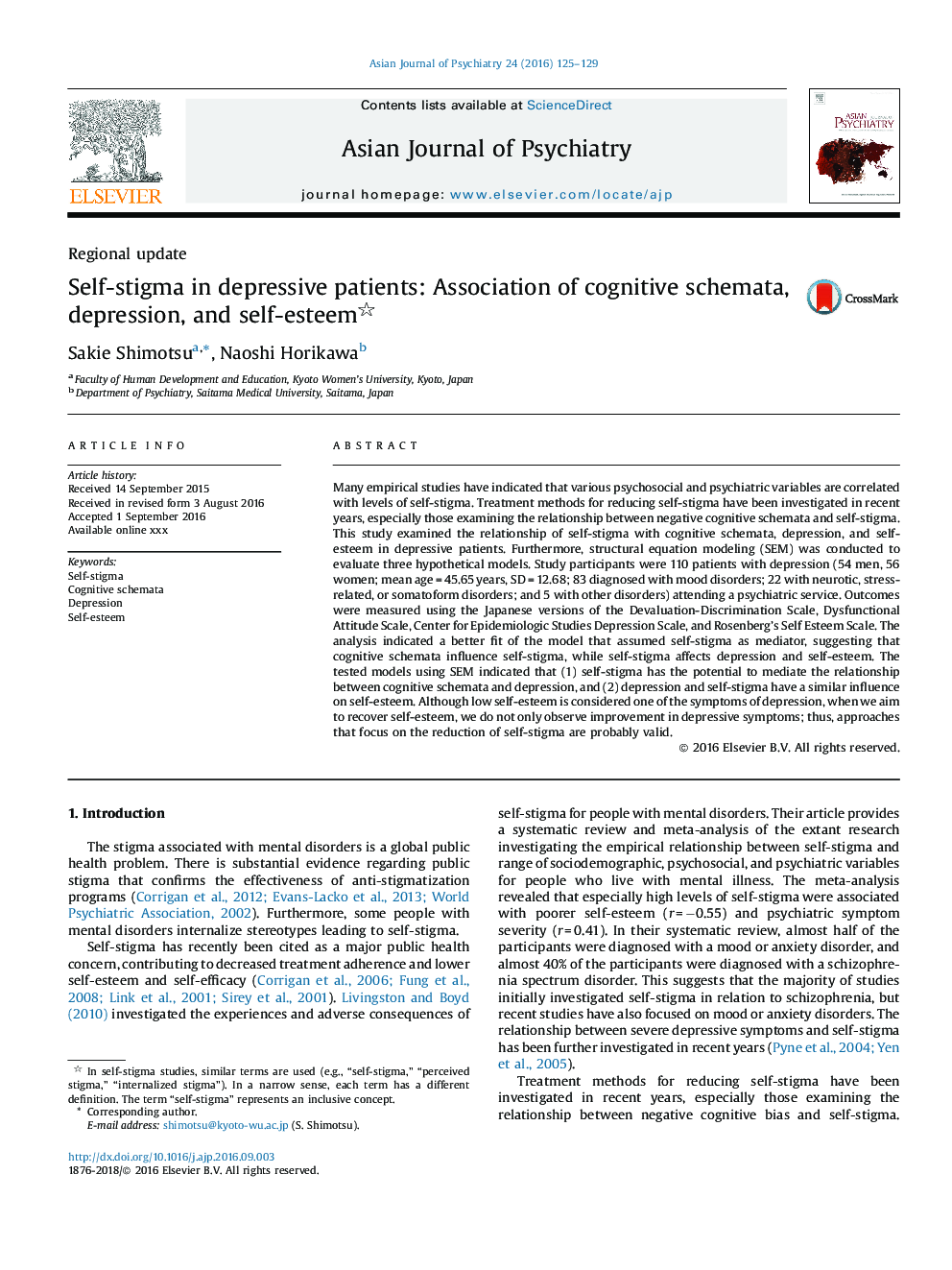| Article ID | Journal | Published Year | Pages | File Type |
|---|---|---|---|---|
| 4929918 | Asian Journal of Psychiatry | 2016 | 5 Pages |
Abstract
Many empirical studies have indicated that various psychosocial and psychiatric variables are correlated with levels of self-stigma. Treatment methods for reducing self-stigma have been investigated in recent years, especially those examining the relationship between negative cognitive schemata and self-stigma. This study examined the relationship of self-stigma with cognitive schemata, depression, and self-esteem in depressive patients. Furthermore, structural equation modeling (SEM) was conducted to evaluate three hypothetical models. Study participants were 110 patients with depression (54 men, 56 women; mean age = 45.65 years, SD = 12.68; 83 diagnosed with mood disorders; 22 with neurotic, stress-related, or somatoform disorders; and 5 with other disorders) attending a psychiatric service. Outcomes were measured using the Japanese versions of the Devaluation-Discrimination Scale, Dysfunctional Attitude Scale, Center for Epidemiologic Studies Depression Scale, and Rosenberg's Self Esteem Scale. The analysis indicated a better fit of the model that assumed self-stigma as mediator, suggesting that cognitive schemata influence self-stigma, while self-stigma affects depression and self-esteem. The tested models using SEM indicated that (1) self-stigma has the potential to mediate the relationship between cognitive schemata and depression, and (2) depression and self-stigma have a similar influence on self-esteem. Although low self-esteem is considered one of the symptoms of depression, when we aim to recover self-esteem, we do not only observe improvement in depressive symptoms; thus, approaches that focus on the reduction of self-stigma are probably valid.
Keywords
Related Topics
Life Sciences
Neuroscience
Neuroscience (General)
Authors
Sakie Shimotsu, Naoshi Horikawa,
